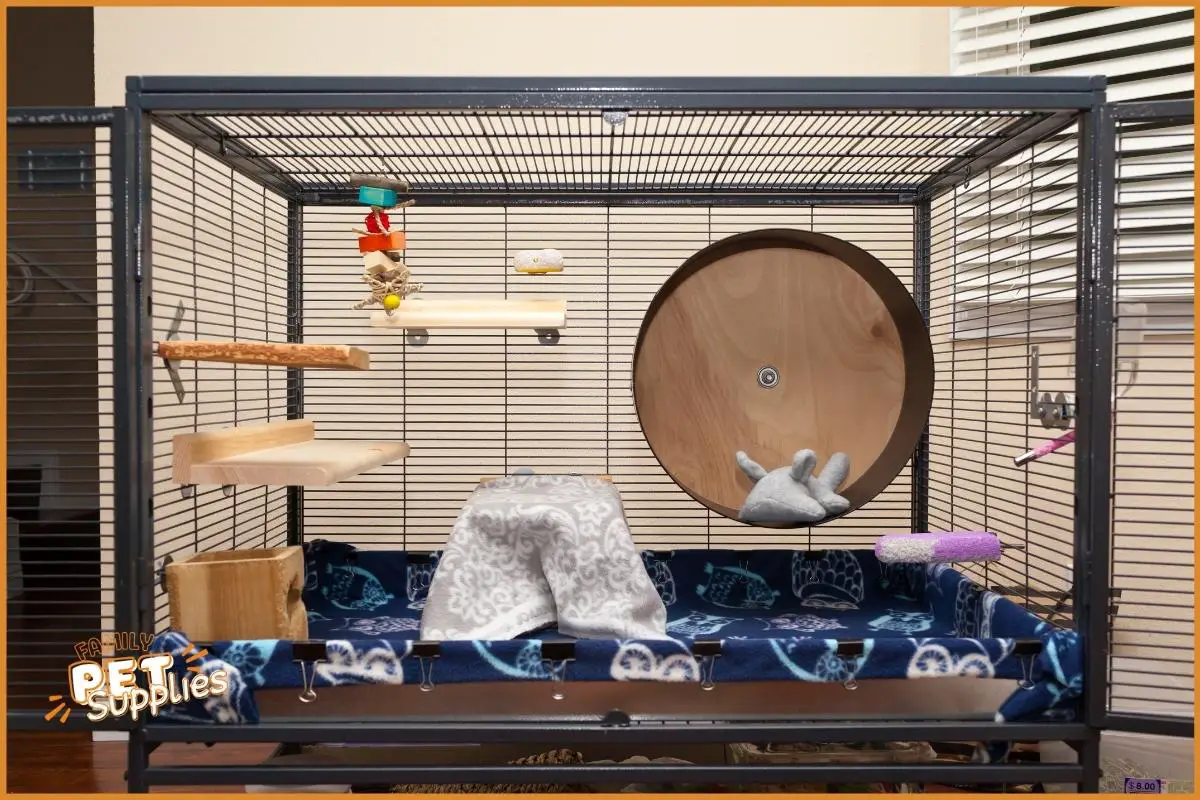Chinchillas can chew on cardboard, as it helps grind down their continuously growing teeth. However, ensure the cardboard is free from inks, glues, and other potentially harmful substances. Chewing is a natural behavior for chinchillas, so providing safe materials is crucial. Cardboard shouldn’t replace the essential chew toys made of wood or pumice.

Key Takeaways
- Chinchillas engage in chewing behavior to maintain dental health
- Cardboard can be used to grind down chinchillas’ teeth, but safe alternatives like wood and pumice are preferred
- Inks and glues on cardboard can be toxic if ingested by chinchillas, so it’s important to choose cardboard free from harmful substances
- Cardboard can be used as an occasional supplement to wood and pumice chew toys, providing different texture and mental stimulation for chinchillas
Chinchillas’ Natural Chewing Behavior
Chinchillas naturally engage in chewing behavior as a means to maintain their dental health and prevent their teeth from overgrowing. Chinchilla dental health is crucial, and providing safe alternatives to cardboard chewing is important.
While cardboard can help grind down their continuously growing teeth, it shouldn’t replace essential chew toys made of wood or pumice. These materials are specifically designed to promote dental health and provide a satisfying chewing experience for your chinchilla.
Wood chew toys, such as apple sticks or untreated pine blocks, can help keep their teeth in good condition. Pumice stones or lava rocks are also great options as they provide a rough texture that chinchillas enjoy chewing on.
Grinding Down Teeth With Cardboard
To grind down their teeth, you can use cardboard as a safe and natural option. Chinchillas have continuously growing teeth, and chewing on cardboard helps wear them down.
It’s important to provide safe materials for your chinchilla’s chewing needs. Using cardboard alternatives can be risky because some materials may contain harmful substances like inks and glues. These substances can be toxic to chinchillas if ingested. So, it’s crucial to ensure that the cardboard you provide is free from any potentially harmful substances.
However, keep in mind that cardboard shouldn’t replace essential chew toys made of wood or pumice. These toys are specifically designed to help chinchillas maintain their dental health.
Safe Materials for Chinchillas to Chew
When it comes to providing safe materials for your chinchilla to chew on, it’s important to consider alternatives to cardboard. While chewing cardboard can help grind down your chinchilla’s teeth, there are other options that can be even more beneficial for their dental health.
One alternative is providing chew toys made of wood or pumice. These materials are specifically designed to promote dental wear and help keep your chinchilla’s teeth in good shape. Wood blocks, sticks, or even untreated fruit tree branches can be great options for your chinchilla to chew on.
Pumice stones are also safe for them to gnaw on and can provide additional dental benefits. Remember, it’s important to always provide safe and appropriate materials for your chinchilla to chew on to ensure their overall health and well-being.
Avoiding Inks and Glues on Cardboard
Make sure to check for any harmful substances like inks and glues on the cardboard before allowing your chinchilla to chew on it. While cardboard is generally safe for chinchillas to chew on, it’s important to avoid any materials that could be toxic to them. Inks and glues often contain chemicals that can be harmful if ingested by your pet.
To ensure your chinchilla’s safety, choose cardboard that’s free from any printing or adhesive substances. Additionally, consider providing your chinchilla with alternative chew toys made of wood or pumice. These materials are specifically designed for chinchillas and are safe for them to chew on.
Cardboard as a Supplement to Chew Toys
You can supplement your chinchilla’s chew toys with cardboard to keep their teeth healthy and satisfy their natural chewing instincts. Using cardboard as an occasional chew toy can provide a different texture for your chinchilla to chew on, adding variety to their enrichment.
Chinchillas enjoy exploring and interacting with different materials, and introducing cardboard into their playtime can provide them with mental stimulation. It’s important to ensure that the cardboard is free from inks, glues, and other potentially harmful substances, as these can be toxic to chinchillas.
Remember that cardboard shouldn’t replace essential chew toys made of wood or pumice, but rather serve as an additional option to keep your chinchilla entertained and their teeth in good condition.
Importance of Wood and Pumice Chew Toys
How important are wood and pumice chew toys for your chinchilla’s dental health?
Very important! Chinchillas have continuously growing teeth, and chewing on wood and pumice chew toys helps keep their teeth in good shape.
Wood chew toys provide a natural and safe material for your chinchilla to gnaw on. The texture of the wood helps grind down their teeth and prevents overgrowth, which can lead to dental problems.
Pumice chew toys, on the other hand, are excellent for wearing down their teeth because of their rough texture. These toys simulate the natural environment of chinchillas and encourage their natural chewing behavior.
Final Thoughts on Chinchillas and Cardboard Chewing
When considering cardboard chewing for your chinchilla, it’s important to remember its limitations and potential risks. While cardboard can help grind down your chinchilla’s continuously growing teeth, it shouldn’t be the sole material for chewing.
Cardboard lacks the durability and hardness needed to effectively maintain chinchillas’ dental health. It’s crucial to provide alternative chew materials, such as wood or pumice, to meet their natural chewing needs. These materials are specifically designed to withstand the strong jaws and sharp teeth of chinchillas.

